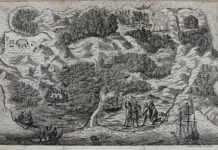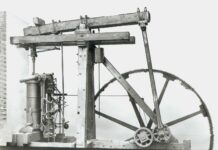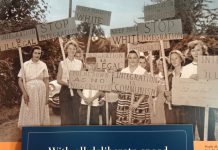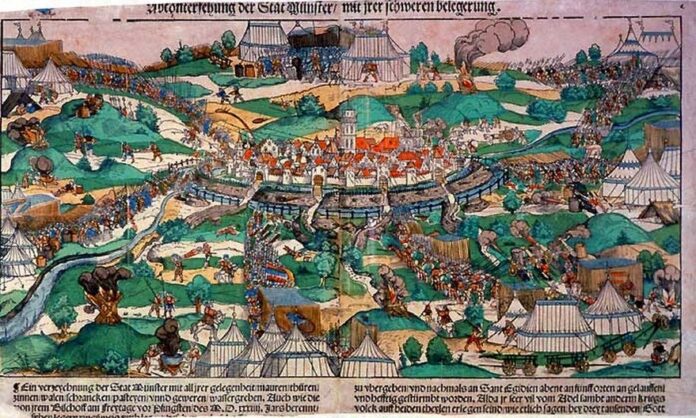
Socialistisk Biblioteks Tidslinje med links til begivenheder og personer i 1535.
Se også Index over personer, organisationer/partier og værker (som bøger, malerier, mm.), steder, begivenheder, mv., der er omtalt på hele Tidslinjen, titler og indhold på emnelisterne osv.
24. juni 1535
Den religiøse fristat i Münster erobres og opløses.
Se:
- Münster-oprøret (Wikipedia.dk)
- Münster rebellion (Wikipedia.org)
- Anabaptism (Wikipedia.org)
Anabaptism was the revolutionary face of Reformation Europe. By Marin Empson (Jacobin, July 12, 2024). “The challenge to the Catholic Church in Europe’s Reformation also stirred up a wave of social revolt by peasants and the urban poor. The Anabaptist movement became a channel for this revolt before it was savagely repressed by a fearful ruling class.”
Communism in Central Europe in the Time of the Reformation. By Karl Kautsky (1897). Chapter 5: The Anabaptists (Marxists Internet Archive)
The Rise and Fall of the Anabaptists. By E. Belfort Bax (1903) (Marxists Internet Archive)
Se også:
Den tyske bondekrig (1850). Af Friedrich Engels (Marxisme Online)
6. juli 1535
Thomas More, forfatter til bogen Utopia (1515), henrettes.
Ofte – urimeligt – betegnet som den første utopiske socialist.
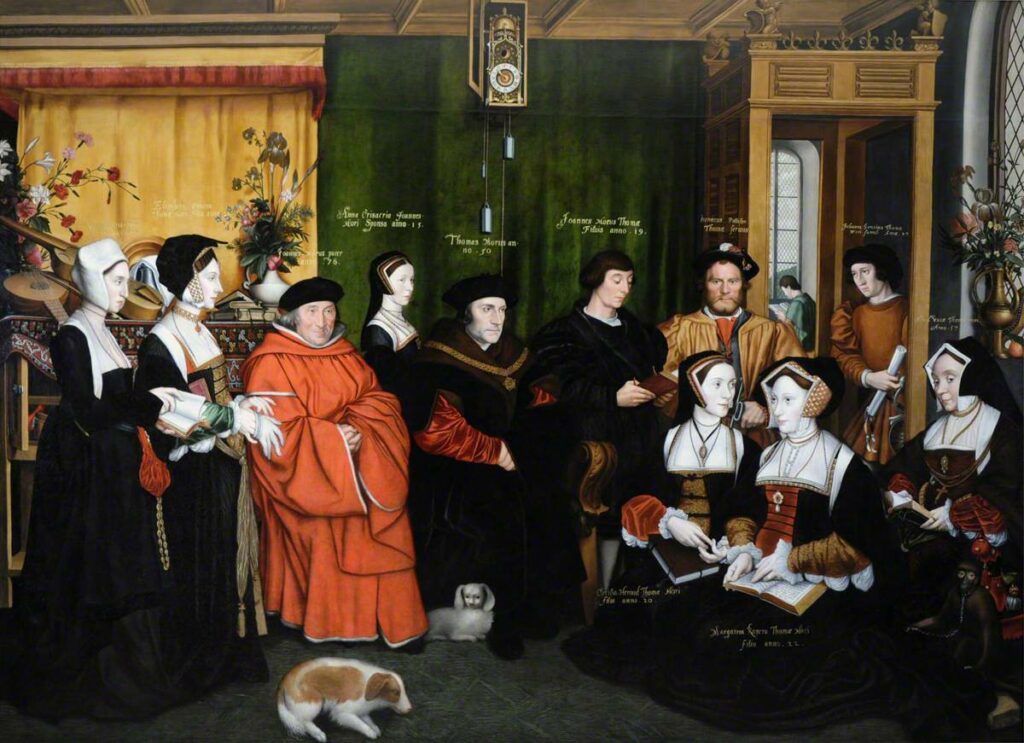
Se:
- Thomas More (Denstoredanske.dk)
- Thomas More (Wikipedia.dk)
- More, Thomas (1478-1535) (Marxists Internet Archive; Glossary of People)
- Thomas More: Utopia (Marxists Internet Archive)
The politics of Utopia. By Tom Bailey (Spiked Review, December 2016). Review of Joanne Paul, Thomas More (Polity Press, 2016, 180 p.). “A fascinating new study sheds light on Thomas More, the political thinker.”
Thomas More and his Utopia. By Karl Kautsky (In English 1927; orig. deutschsprachlich 1888)
Se også på Socialistisk Bibliotek:
Tidslinjen: Januar 1516, om “Utopia”
Citat:
“in Utopia, where every man has a right to everything, they all know that if care is taken to keep the public stores full no private man can want anything; for among them there is no unequal distribution, so that no man is poor, none in necessity, and though no man has anything, yet they are all rich; for what can make a man so rich as to lead a serene and cheerful life, free from anxieties”.
Thomas Moore udgiver sin bog Utopia i 1516.
Encyclopedia Britannica indeholder følgende:
In May 1515 More was appointed to a delegation to revise an Anglo-Flemish commercial treaty. The conference was held at Brugge, with long intervals that More used to visit other Belgian cities. He began in the Low Countries and completed after his return to London his Utopia, which was published at Leuven in December 1516. The book was an immediate success with the audience for which More wrote it: the humanists and an elite group of public officials.
















